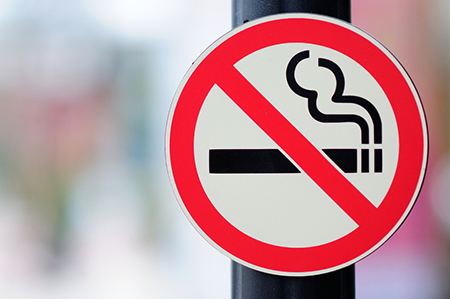 How quitting smoking can improve a woman’s health
How quitting smoking can improve a woman’s health
The decision to quit smoking is one of the best choices you can make to live a healthier lifestyle. Quitting smoking benefits both men and women in many ways. However, it also has several benefits specific to your health as a woman.
Get to know more about the link between quitting smoking and these common women’s health conditions. Then, talk to your OB GYN or another trusted healthcare provider to get the support you need to quit.
Reduced risk for cancer
The association between smoking and cancer has been studied for many years. Most people first think of smoking and lung cancer because the condition is most commonly diagnosed in those with a history of smoking.
But quitting smoking also reduces your risk of many other cancers too, including gynecologic cancers. According to the American College of Obstetricians and Gynecologists, smoking is a risk factor for certain types of ovarian cancer, breast cancer, and cervical cancer.
Improved fertility
When you’re trying to conceive, it can help to quit smoking. The American Society for Reproductive Medicine says that smoking can speed the decline in reproductive function and make the use of fertility procedures like IVF less effective. This means smoking can contribute to a longer time before you get pregnant.
It’s also important to note that the smoking habits of those close to you matter too when it comes to fertility. Even if you don’t smoke, secondhand smoke can have some of the same effects on fertility as smoking yourself.
Healthy pregnancy
If you smoke while pregnant, nicotine and other chemicals can pass through the placenta to your baby. That’s why quitting smoking is a great way to help support a healthier pregnancy. The Food and Drug Administration says this can help reduce your risk of conditions associated with smoking during pregnancy, such as ectopic pregnancy and miscarriage. Quitting also benefits your baby by reducing the risk of low birth weight, lung conditions, or SIDS.
Stronger bones
Women are at a higher risk than men of osteoporosis, a condition that includes a loss of bone mass and weaker bones. Both smoking and exposure to secondhand smoke can increase the risk of lower bone mass. However, there’s good news. A study in the Journal of Osteoporosis stated that stopping smoking seems to reverse its negative effects on bones, which can lead to better bone health.
Benefits for cardiovascular health
Smoking affects your heart and blood vessels in numerous ways. The National Heart, Blood, and Lung Institute says even light or occasional smoking, as well as secondhand smoke, can impact your cardiovascular health. Quitting smoking can reduce your risk of heart disease, peripheral artery disease, and stroke.
If your considering birth control options, talk to your OB GYN about how smoking or the decision to quit smoking affects your choices. In some cases, the combination of the birth control pill and smoking can increase the risk of cardiovascular problems even more.
Overall health and well-being
In the end, quitting smoking benefits your whole body—from your skin to your vital organs to your reproductive health. Both women and men who quit experience a range of health advantages and a better quality of life. As a result, the CDC says the choice to quit can add as much as 10 more years to a person’s life expectancy.
If you’re ready to quit or if you’ve tried before, you have many support options. Talk with your health provider, such as your OB GYN if smoking is affecting your women’s health. He or she may be able to connect you with local resources for tobacco cessation. You can also find help online, including information tailored just for women at Women.SmokeFree.gov.
